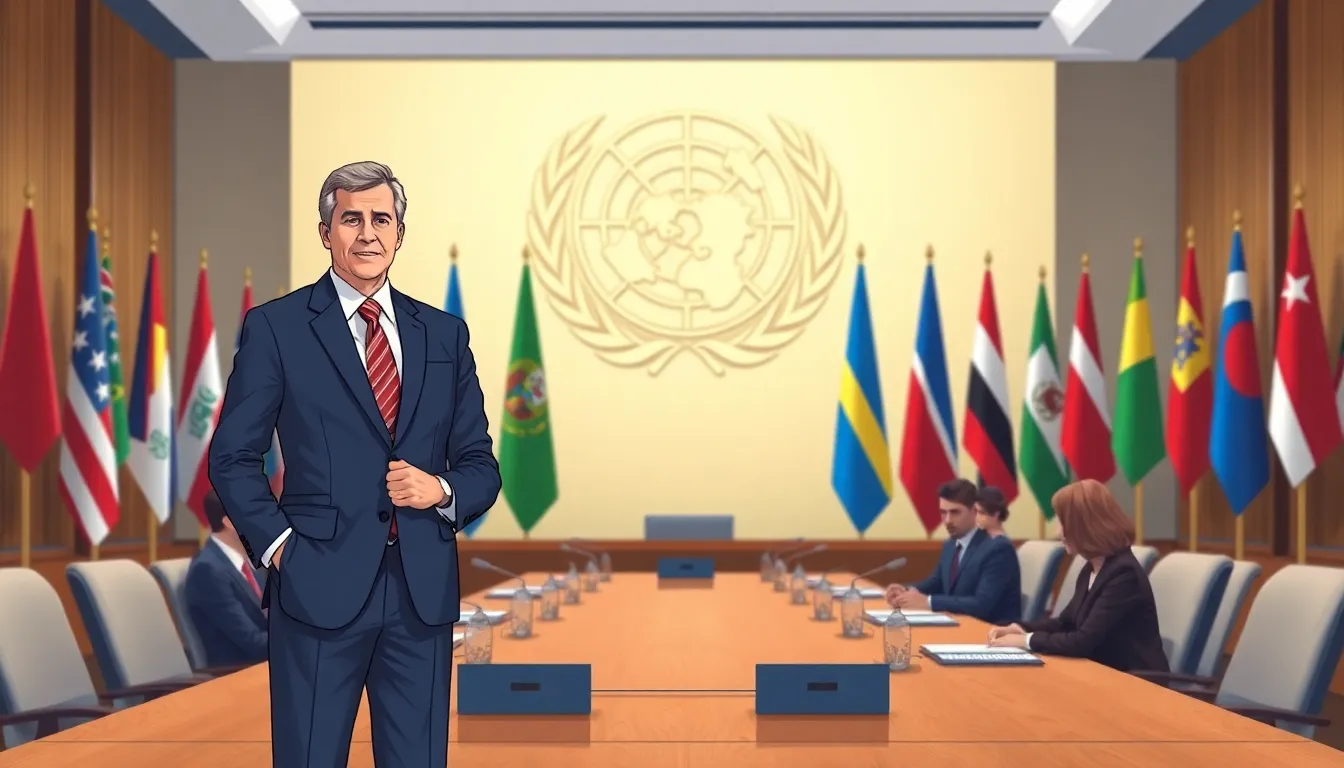In a world that seems to spin faster than a hamster on a wheel, understanding global affairs is more crucial than ever. But what exactly does “global affairs” mean? It’s not just a fancy term tossed around at cocktail parties—it’s the intricate web of relationships, politics, and economics that shape our lives across borders.
Table of Contents
ToggleUnderstanding Global Affairs
Global affairs encompass the intricate relationships and dynamics that shape international interactions. Understanding these factors requires awareness of various elements that influence global stability and prosperity.
Importance of Global Affairs
Recognizing global affairs emerges as crucial in a rapidly changing environment. Policies enacted by countries affect trade relationships, security alliances, and environmental commitments. Awareness promotes informed citizenry that engages effectively in global discussions. Facilitation of communication between nations encourages cooperation on pressing issues, such as climate change and humanitarian crises. Stakeholders, including governments, NGOs, and businesses, rely on insight into global affairs to strategize and make decisions.
Scope of Global Affairs
The scope of global affairs includes various dimensions, such as international relations, global economics, and cultural exchanges. In international relations, diplomacy plays a vital role in negotiating treaties and resolving conflicts. Economic interactions involve trade agreements, foreign investments, and market access that drive global economic growth. Cultural exchanges enhance mutual understanding, fostering respect among diverse societies. Technological advancements also influence the flow of information across borders, shaping perceptions of global events. Analyzing these elements reveals the multifaceted nature of global affairs.
Key Components of Global Affairs

Understanding global affairs hinges on several key components, each contributing to the complex international landscape.
Political Dimensions
Political dimensions encompass the frameworks of international relations and power dynamics. Nations interact through diplomacy, treaties, and alliances, shaping political stability worldwide. Conflicts arise from differing national interests, which countries must navigate. The role of international organizations, like the United Nations, becomes crucial in mediating disputes and establishing norms. Leaders influence these interactions, and their decisions can lead to cooperative or adversarial relations. Countries often engage in multilateral discussions to address global challenges, promoting collective actions that foster peace.
Economic Factors
Economic factors play a pivotal role in global affairs by driving trade and investment. Countries rely on trade agreements to enhance economic ties, allowing for the exchange of goods and services. Foreign direct investment can significantly impact local economies, creating jobs and fostering development. Global markets influence national economic policies, as fluctuations in one region can affect others. Awareness of economic conditions, such as recession or growth patterns, helps nations make informed decisions. Economic collaboration can address issues like poverty and inequality, highlighting the interconnectedness of global economies.
Social and Cultural Aspects
Social and cultural aspects enrich global affairs by fostering cross-border connections. Cultural exchanges enable nations to share values, arts, and traditions, enhancing mutual understanding. Migration patterns impact demographics and cultural landscapes, leading to diverse societies. Awareness of human rights issues creates opportunities for countries to collaborate on social justice initiatives. Social media allows for the rapid dissemination of cultural information, shaping public perceptions of global events. Understanding these aspects promotes tolerance and cooperation, essential for addressing global challenges like migration and humanitarian crises.
The Role of International Organizations
International organizations play a vital role in shaping global affairs. By facilitating dialogue among nations, they help address shared challenges and promote cooperation.
United Nations
The United Nations (UN) serves as a central platform for international diplomacy. Established in 1945, its primary purpose includes maintaining peace and security worldwide. The UN unites 193 member states to discuss issues like conflict resolution, sustainable development, and human rights. Various specialized agencies, such as WHO and UNESCO, work together to target specific challenges. These agencies provide assistance and expertise, enhancing the UN’s overall effectiveness.
Regional Organizations
Regional organizations significantly impact global relations through localized cooperation. The European Union (EU) exemplifies an economic and political union that fosters collaboration among European states. Similar organizations, like the African Union (AU) and Association of Southeast Asian Nations (ASEAN), address regional issues, promote economic integration, and ensure political stability. Each organization addresses specific challenges, such as trade, security, and environmental concerns, reflecting the unique needs of their respective regions. These organizations are crucial for enhancing regional security and promoting development.
Challenges in Global Affairs
Global affairs face significant challenges that arise from complex global interactions. These challenges manifest in various forms, including geopolitical tensions and the effects of globalization.
Geopolitical Tensions
Geopolitical tensions escalate due to power struggles among nations. Conflicts often emerge from territorial disputes, resource competition, and ideological differences. For instance, relationships between countries like the United States and Russia have experienced significant strain, affecting global stability. Rivalries can also hinder cooperation on pressing issues, such as climate change and public health. Diplomatic efforts continue to seek resolution and prevent conflicts from escalating further.
Globalization and Its Impact
Globalization transforms economies and cultures, leading to both opportunities and challenges. Increased trade and investment foster economic growth but also create disparities between nations. Countries often face pressure to adapt to global markets while addressing domestic concerns, such as job displacement. Moreover, cultural exchanges enrich societies but can lead to tensions over identity and values. International collaboration proves essential in navigating these complexities while striving for equitable development across regions.
Understanding global affairs is crucial for navigating today’s interconnected world. As international dynamics continue to evolve, awareness of political, economic, and cultural factors becomes essential. Engaging with global issues fosters informed discussions and encourages cooperation among nations.
The role of international organizations and regional alliances cannot be overstated, as they facilitate dialogue and address shared challenges. By recognizing the complexities of global affairs, individuals can contribute to a more stable and prosperous future. Active participation in these discussions ultimately leads to better outcomes for societies worldwide.





